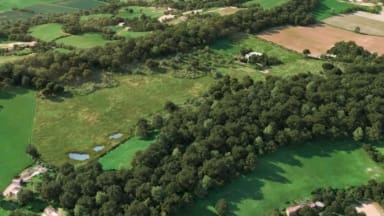
The off-site Biodiversity Net Gain (BNG) provider, the Environment Bank and RSK Biocensus, the ecological consultancy have announced a collection of BNG Habitat Banks to be secured under a conservation covenant, meaning they can be added onto the national biodiversity gain sites register.
The eight BNG sites, covering almost 500 acres, have had a conservation covenant approved by RSK Biocensus’s BNG team, RSK Wilding, unlocking more than 800 off-site Biodiversity Units for developers to purchase. This marks the first conservation covenants to be signed by both companies. The sites will shortly be added to the gains site register and will almost double the number of sites on the national registry, from 11 to 18.
Catherine Spitzer, CEO, Environment Bank said: “Environment Bank has 25 Habitat Banks already live, generating over 4000 Biodiversity Units. Securing legal agreements for these sites is the final step in unlocking the supply of Biodiversity Units. With developers required to ensure their projects benefit nature overall, this marks a significant milestone in the implementation phase. We have already sold Units to over 50 customers and received over £160m worth of enquiries. Now with supply unlocked, we can meet growing demand. This is a really positive step in helping this fledgling market thrive.”
Conservation covenant agreements with a Responsible Body are one of two types of legal agreement to secure land for Biodiversity Units. The other is a planning obligation (section 106) with a local planning authority (LPA). Either one of these legal agreements are required to be in place to before Biodiversity Units can be brought to market because BNG sites must be secured under a legal agreement before they can be formally registered on the national gains sites register.
For BNG, developers are required by law to ensure that all significant developments deliver a minimum 10% increase in biodiversity. Environment Bank enables developers to purchase Biodiversity Units from their dedicated BNG Habitat Banks, which are managed and fully forward funded for the required period of 30 years. The Environment Bank has received £240m backing by Gresham House’s British Sustainable Infrastructure Fund.
RSK Biocensus was one of the first organisations appointed by the Department for Environment, Food and Rural Affairs (Defra) as a Responsible Body to work with landowners, developers and BNG providers like Environment Bank, to secure areas of conservation and biodiversity. A Responsible Body is a new position created by the Environment Act 2021 that allows for conservation covenant contracts to be entered into. These are agreements on how an area of land can be used, and they must have a conservation purpose. Once the conservation covenant has been agreed, the change of land use is registered, and this becomes binding for a fixed timeframe, even if the land is sold to a new owner.
Jon Davies, Director, RSK Wilding added: “This is an exciting step in the development of the BNG market. Conservation covenants are crucial to boosting the supply of Biodiversity Units alongside LPA-led section 106 agreements. We have worked closely with Environment Bank in the process of approving their Habitat Banks, and were impressed with their professionalism, collaborative spirit and ecological integrity, as well as with the long-term financial bond to secure ongoing management of the land. We took on the role of Responsible Body because we are really keen to make sure that BNG delivers the ecological and other environmental benefits that we all want it to, whilst at the same time facilitating sustainable development. It is wonderful to be able to work with Environment Bank to help them get their schemes approved and over the line, thus helping to unlock the supply of Biodiversity Units for developers.”
The eight BNG sites secured under conservation covenants include:
- Minting Habitat Bank, Lincolnshire
- Heacham Habitat Bank, West Norfolk
- Martley Habitat Bank, Worcestershire
- Emberton Habitat Bank, Buckinghamshire
- Bolsterstone Habitat Bank, South Yorkshire
- Cornwell Habitat Bank, Oxfordshire
- Horwich Habitat Bank, Greater Manchester – Two BNG sites at this location

